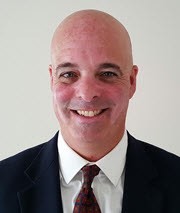I met James Holland pretty soon after I started my own law firm through the discussion groups on LinkedIn. He was a kindred spirit because he was talking about the same things that I was: the need for fee transparency, the elimination of conflicts of interest, and the need for plan sponsor to go through a prudent fiduciary process in managing the 401(k) plan. Not only is MillenniuM (MIRA) an original advertiser on this site, it’s one of the original fee transparency advisory groups out there.
Q: How did you start in the retirement plan business?
A: Prior to joining MIRA I ran a benefit consulting firm with my brother that focused more on Group Health and ancillary coverages, however we did handle a few qualified plans. It is when I joined MIRA that my sole focus was put toward retirement plans.
Q: We met through LinkedIn years before fee disclosure became an actual requirement and you were one of the champions of it before it became fashionable. How do you see the impact of it on the industry?
A: We are all about full disclosure so I think it is important to share that MIRA had a seat at the table early working with the folks at ASPPA and in D.C. on fee disclosure so we had some advance knowledge of where the puck was headed. As for the impact I think overall it has been positive. I think too many people were hoping it would be a cure all for everything that is wrong in the space and that is just unrealistic. People were looking for a tidal wave when instead they got a slow steady change. Plan Sponsors and more importantly participants are more aware now than they were 5 years ago so that is a plus however there is still a long way to go. Part of the issue is that Sponsors still don’t know what to do with the information they’ve been given. They have it but what do they do with it now? Fee disclosure got the ball rolling now it is imperative that together Advisors partner with Plan Fiduciaries and participants and pick the ball from here and carry it to the finish line.
Q: MillenniuM is known for its low cost advisory and Fiduciary services, but you partner up with local advisors to help them out. How much of your business is working with the other advisors?
A: We have always believed that the Qualified plan business is a team sport and it takes a group of dedicated professionals working with a set of common goals and objectives to ensure everyone involved benefits. So it is impossible to be all things to all people, so having each person focus on their core competencies helps ensure a positive outcome. So with our programs our outside Advisor/Broker partners can focus on participant outcomes or being the 3(38) and we can handle the rest. The advisors we typically partner with are relationship-oriented and focus on participant outcomes. Some want to take on the 3(38) investment fiduciary role, but in either case they don’t have a lot of experience with ERISA and all the rules and regulations, which is where we can add significant value. 90% of our business comes from outside advisors/brokers.
Q: You’re a big proponent of a prudent Fiduciary process, do you see more plan sponsors understanding the need for it?
A: Yes we are we believe it is the foundation of a well-run plan. Yes we do see more plan sponsors starting to embrace the idea that running a retirement plan is a serious business and also facing the reality that they are not qualified to handle the job and are now actively seeking outside assistance from independent, qualified professionals, just like they would for tax or legal advice. Again the shift has been slow but the momentum is building and I believe will continue in the direction of outsourcing which is a very good thing for all parties involved.
Q: How do you see the new Fiduciary Rule impacting the retirement plan business?
A: Again very much like fee disclosure I think too many people view this as a panacea which it is not and nothing can be. I think it will have a positive impact because it will chase out some people who should never have been in the space in the first place and force others who want to stay in the game to step up their game. In addition I hope it will continue to force Plan Sponsors and participants to get more engaged and start asking tougher questions and hold all the people they work with on their plans feet to the fire to make sure their interests are being served.
Q: Has the new rule made a lot of brokers call you up in partnering up so that you offer Fiduciary services and they can still can work with clients in a non-Fiduciary setting?
A: We have seen an uptick in Advisors/Brokers reaching out to discuss what their options can be moving forward. I still feel far too many CCO of BDs are turning a blind eye or keeping their heads buried in the sand in the hopes that it will all go away which is a recipe for disaster and I am sure we will see quite a few of them as this all shakes out.
Q: One of the consequences of the new Fiduciary rule is probably the proliferation of robo-advisors. Do you think this will be a positive or negative impact for plan sponsors?
A: I believe the robo phenomenon or whatever term you would like to use will impact IRA business far more than qualified plan business. When things change there will always be some who believe they can take advantage of the chaos. ERISA is incredibly complex and to simply come in a say We have developed a program that can handle all of these complexities in the push of a few buttons is short sighted to say the least and insulting to many in the space that have dedicated their careers to helping plan sponsors and participants.
Q: Do you think revenue sharing is going to be a thing of the past?
Yes we have never believed revenue sharing has been able to bring ANY value to plan sponsors or participants, thankfully you have seen a shift among the fund providers and other service providers away from this practice and we believe it will continue to play less of a role until eventually it disappears sooner rather than later.
Q: One of the knocks back in the day on us on LinkedIn was that no small plan sponsors at the time were being sued. Do you think there will be more litigation against medium sized and small sized plan sponsors?
A: Make no mistake a cottage industry has been formed and it is not going away any time soon. Regulation, Legislation, new Fiduciary definitions and rules are fine but Litigation is what will continue to change the space. The “big sandboxes” will empty at some point all the bad plans will have been targeted and the others will work to fix theirs before they become targets. Snowballs roll downhill not uphill. Litigators will catch on to what the key firms in the space are doing and modify it to work on the smaller plans. These plans are far more susceptible because they do not have the internal staff to fully understand ERISA and how to protect themselves nor do they have the money in corporate budget to defend themselves. I believe we will see settlements grow to avoid litigation cost and time wasted on depositions and other trial related areas.
Q: How can advisors and plan sponsors learn more about the services that MIllenniuM offers?
A: They can visit our website www.fix401k.com or email me at jamesh@miracenter.com or 704-743-3226 we would welcome the opportunity to speak to anyone interested. Thank you Ary for this opportunity and for your continued support, you are an invaluable partner to MIRA and its network of Advisors.







